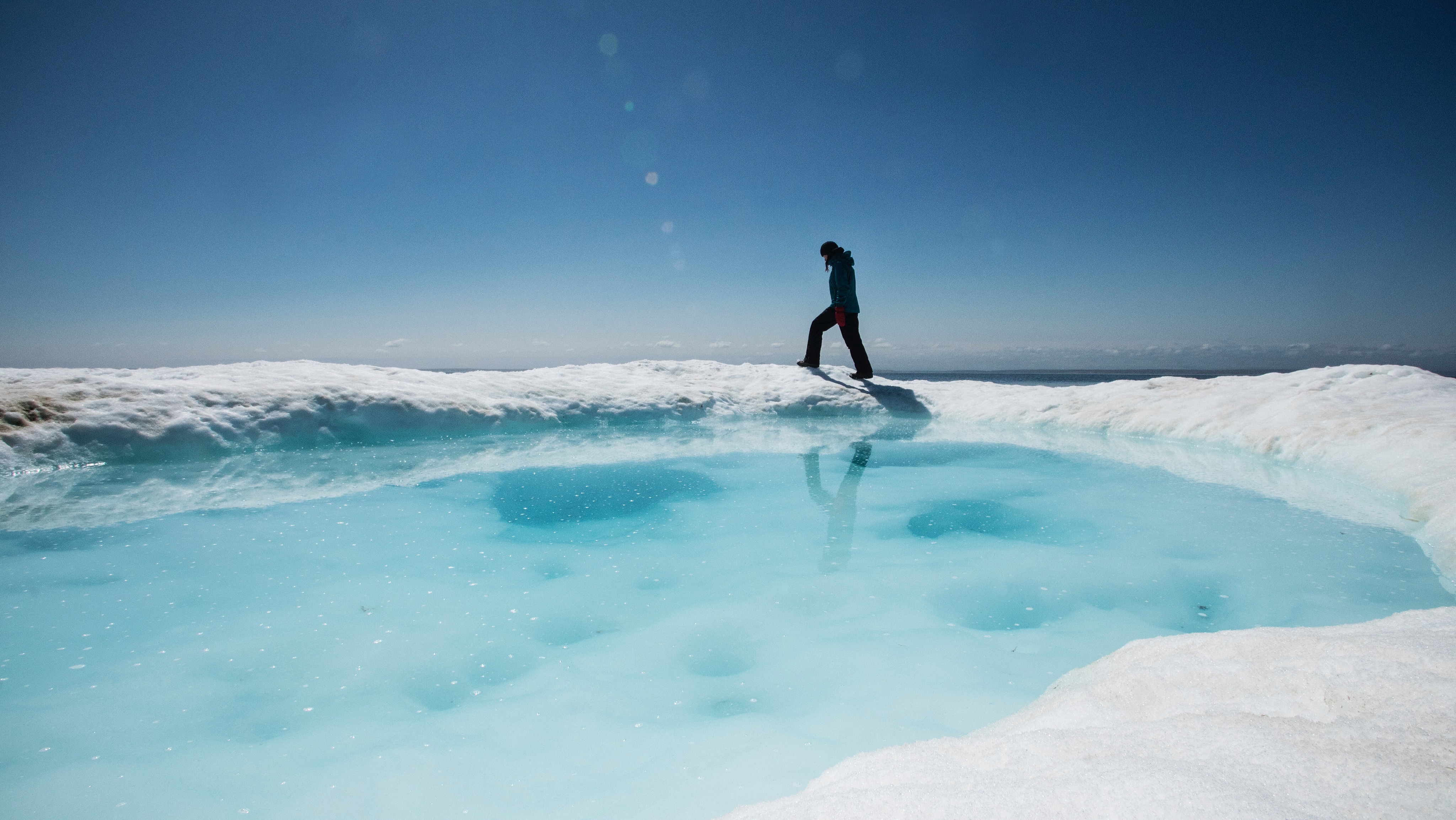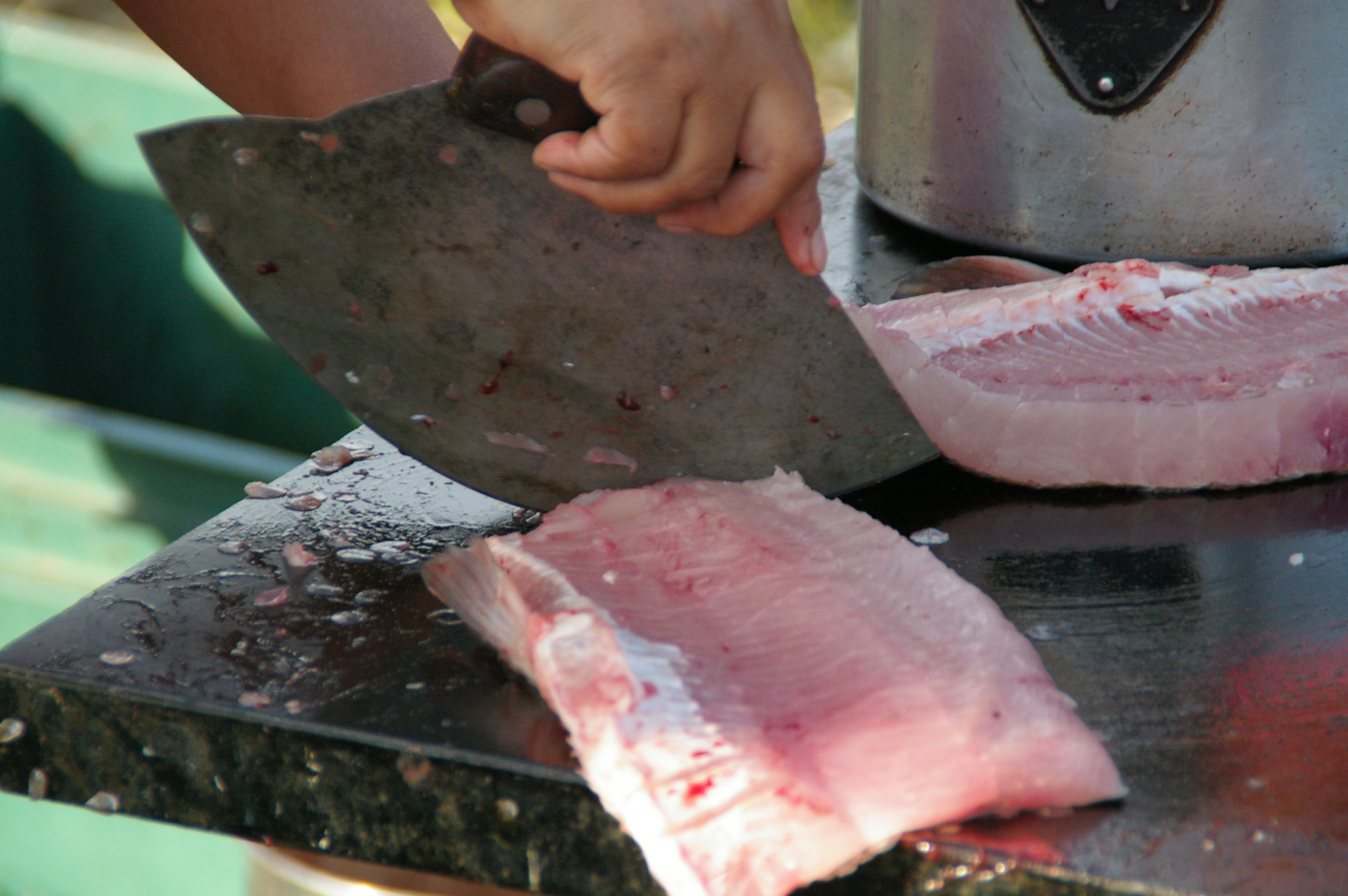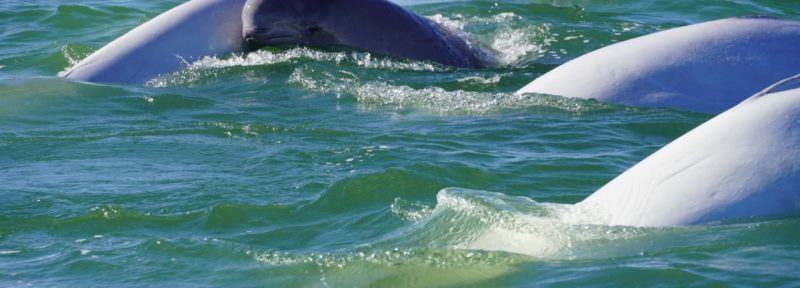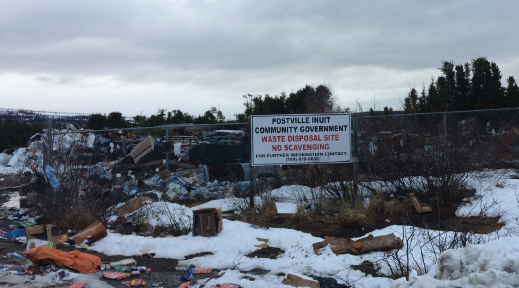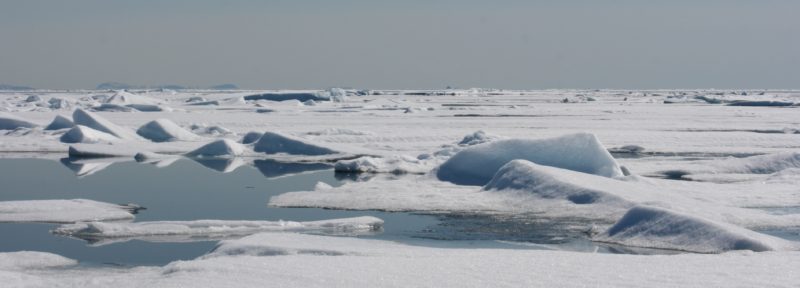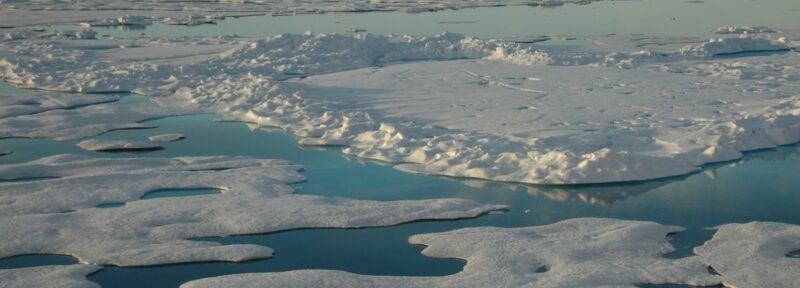A Message from Oceans North
Marine biologist Kristin Westdal, of Oceans North, navigates around a meltwater pond, Mittimatalik (Pond Inlet), Nunavut.
Credit: Kristin Westdal
As the COVID-19 pandemic sweeps across this country and the world, we are facing a time of great uncertainty and anxiety. First and foremost, our priority must be to do what is necessary to stop the spread of this virus and protect our loved ones and communities. At Oceans North, we have joined this effort by emphasizing physical distancing, cancelling travel plans and shifting to working from home. We are immensely grateful for the health care professionals, grocery staff, farmers and fishers, transportation workers and others who are providing essential services on the front lines during this global health crisis.
In the midst of these challenges, we are reaching out to our marine conservation partners in both Arctic and Atlantic communities, industry and government to assess how we can continue to work toward healthy oceans and resilient communities. We are determining which projects can proceed this year, and which ones will have to be delayed. Looking ahead, we hope to envision ways that marine conservation can play an import role in helping communities recover from the pandemic. We are committed to finding creative strategies that will allow us to keep doing our part to protect the people and places we care about.
In addition to our conservation work, we are responding to some immediate needs related to the pandemic. Last year, we partnered with the Canadian Northern Economic Development Agency and the Government of Nunavut to help the community of Naujaat, Nunavut market their Arctic char to high-end restaurants in Winnipeg. When the epidemic forced the sudden closure of these restaurants last month, we quickly emptied the freezers and worked with Tunngasugit Inuit Resource Centre to distribute this char to Inuit families in need in the city.
Using an Ulu to prepare Arctic Char.
Credit: Henry Huntington
In Nunatsiavut, our staff person is working to secure N95 masks for communities so they are more prepared should any cases of COVID 19 be diagnosed in the region. In Nova Scotia, we have been working with fishermen and other partners to explore more options for local seafood purchase, with a focus on lobsters given the slump in international markets. We realize this will only make a small dent in the potential backlog of lobsters but it is one way to support our fishermen. After all, lobster is embedded in Atlantic culture. We are also advocating with government officials and private industry to ensure that relief funds are distributed to communities and marine industries in meaningful ways in the coming weeks.
Ultimately, the quality of our relationships and how we care for each other during a crisis will determine our success at reducing human impacts on our oceans, and ensuring that coastal and Indigenous communities can rely on these waters for sustainable livelihoods. We are acutely aware of how our natural world is providing solace to us during these difficult times. If ever there was a moment to realize the interconnectedness of life on our planet, it is now. We will only find a way through this together.
Susanna Fuller is vice-president of operations and projects for Oceans North.

